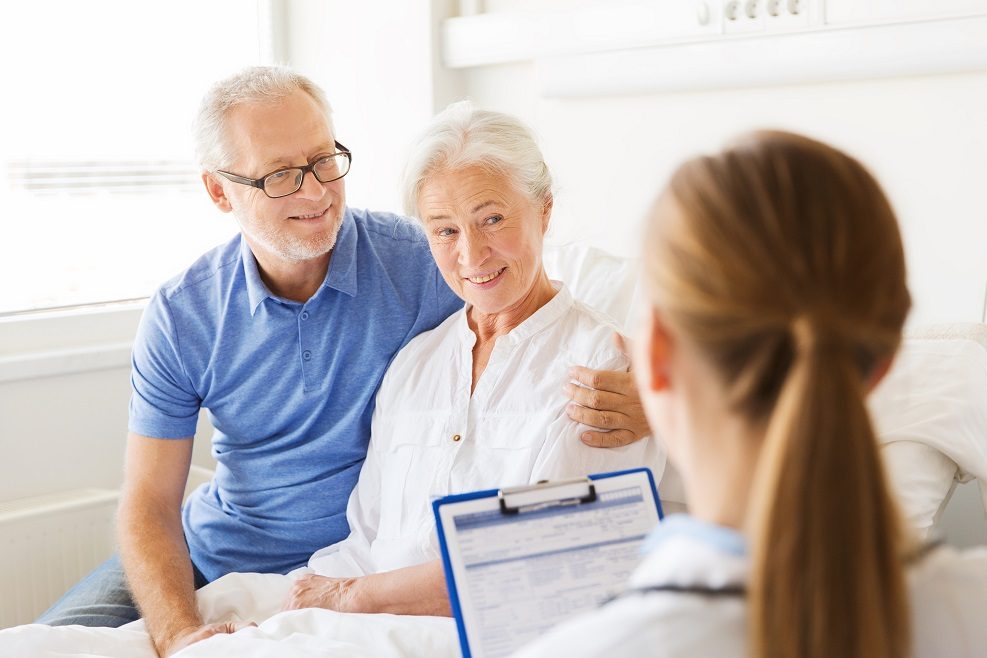Pancreatic cancer is often called a silent cancer as the early signs often go unnoticed, and by the time someone visits their doctor and a diagnosis is made there can, unfortunately, be little that can be done.
As with many cancers, unexplained weight loss can be a warning sign that something is not right. Pancreatic cancers other, more obvious, signs can be abdominal and middle back pain. Yellowing skin and eyelids (jaundice), fatigue, itching and depression are all seen as possible indicators. Should you experience a combination of these symptoms it is advisable to visit a doctor. The LOC provides extensive support and information for pancreatic cancer and treatment options should you have any concerns.
Treatment options

After receiving a diagnosis it is common to want to know what options you have for treatment, the feeling of knowing that your doing something about your diagnosis can be empowering, but it is also important to note that if thinking about treatment is overwhelming that is ok too. Your doctor will be able to guide you through your options.
Traditionally, treatment for Pancreatic cancer can include surgery, medical approaches like chemotherapy and radiotherapy and also supportive care. Surgery is often the first approach, deepening on where the cancer is your doctor may classify your cancer as being
Resectable, able to be removed.
Borderline Resectable, the cancer may have reached near or around surrounding blood vessels but is still able to be removed. The chances of some cancer remaining can be quite high however.
Unresectable, the cancer cannot be removed, however surgery may be performed to remove parts of the cancer that are blocking or pressing on other organs. This type of surgery will increase quality of life but will not remove the cancer.
Living with the Diagnosis
Once the reality of living with pancreatic cancer sets in your life can become a revolving door of doctor appointments, check ups, check-ins and treatments. Eating can suddenly become a challenge, and it can be frustrating to understand the importance of a good diet during this time but be unable to hold down food or struggle with lack of appetite. Advice from Cancer Research UK is to try to eat little and often. There may be times where you feel hungry and able to keep food down which is why is is a good idea to keep nutritious snacks such as full fat yoghurt, flapjacks, cereal, nuts, cheese and even desserts like chocolate mousse on hand to nibble on. If your food intake is of serious concern speak to your doctor about meeting with a nutritionist or dietician.

Managing pain can be a large part of living with pancreatic cancer. Discuss your pain levels with your treatment team and they will be able to suggest the best methods of controlling it. Pain killers ranging from paracetamol and ibuprofen to opioids can be helpful in reducing inflammation and pain. Nerve blockers may also be an option for tingling pains and treatments such as chemotherapy and radiotherapy can also reduce nerve pain by shrinking tumour’s so thy don’t press on nerves. Holistic ways of controlling pain should also be considered, listening to relaxing music, massages and mediation can help control anxiety which can increase pain levels.
Don’t Suffer Alone
Living with pancreatic cancer, like any cancer, can be emotionally draining and incredibly overwhelming. It is important to know the you are not alone during these difficult times. Sharing your feelings can make a big difference on your outlook and also provide relief on an emotional level that the physical treatments may not. There are many support groups for those affected by pancreatic cancer throughout the UK including family members and carers. There is also a dedicated support group for survivors of pancreatic cancer- The Pancreatic Cancers Survivor Group, they currently have 38 members who support each other via a private Facebook group and also meet up in person twice a year.
For individuals who have limited mobility or are nervous about speaking face to face about their feelings, telephone helplines and online support group can be beneficial outlets. Ask your doctor about what types of emotional support is available to you or check here for support groups.
We wish you the best of luck in your treatment and your future health.

Leave a Reply